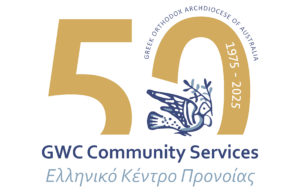VEMA – 2013
Throughout history cancer has been one of the few illnesses that has had stigma associated with it. There are some things that can get in the way of talking about cancer e.g. our own fear, other people’s fear. As a consequence, myths have resulted which have become barriers in screening, prevention and support. There is a superstition that talking about cancer would enhance its malevolent power. Some people do not even use the word cancer.
One general myth is that the number of people diagnosed with and dying from cancer is increasing. In fact, more people with cancer are now living longer, with a better quality of life due to early diagnosis, life-style changes and better treatment options.
Another myth is that cancer results in a painful and early death. Cancer is not necessarily a death sentence. There are now, many effective treatments, with more than 60% of people with cancer surviving five years or more after the initial diagnosis.
For some people, another myth is that cancer is viewed as contagious and this may result in social avoidance. In reality no cancer is contagious.
Many things we hear about in casual conversations may be inaccurate. For this reason it is important that we become better informed about cancer so we can reduce misconceptions. Checking with one’s doctor is the best way to determine the accuracy of what is being heard.
In the last thirty years, scientists have developed better screening tests that can be used for the early detection of cancer. Sometimes cancer screening tests can even find cancer that isn’t causing harm.
However, some individuals, due to their beliefs and attitudes about cancer, psychological factors or poor knowledge, do not take up screening. Fear of cancer is one of the most main barriers to screening. Another barrier is embarrassment about discussion and exposing of private body parts during a physical examination. Others do not go for screening because they do not believe they are at risk either because there is no family history or there are no symptoms.
Whether a person goes for screening will depend on their perception of the associated benefits and costs. Almost every test or procedure carries benefits and risks. The important thing is to be aware of them so the best decision is made for the individual.
In most cases, the earlier a cancer is detected, the earlier treatment can commence. This could mean less treatment may be required and less time needed for recovery and generally, the chances of survival would be better.
There are different views and different guidelines about which cancers should have screening tests, when and how often the tests should be done. An individual should talk to their doctor about the potential risks and benefits of screening and this should be in the context of their age, personal and medical history. Research and experience has shown that people will attend for screening if it is recommended by the doctor. Evidence indicates that people with a regular doctor who is their usual source of care are more likely to be screened.
Education is an important tool in prevention and early detection of cancer. It is important that we talk about cancer and in this way, reduce some of the misunderstandings which exist around cancer. By having accurate information we hope that screening is taken up as recommended by our doctors and that this will assist in either prevention or early treatment and better quality of life.
